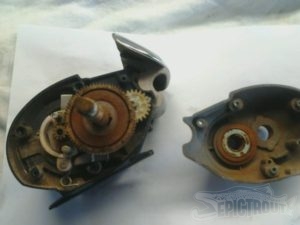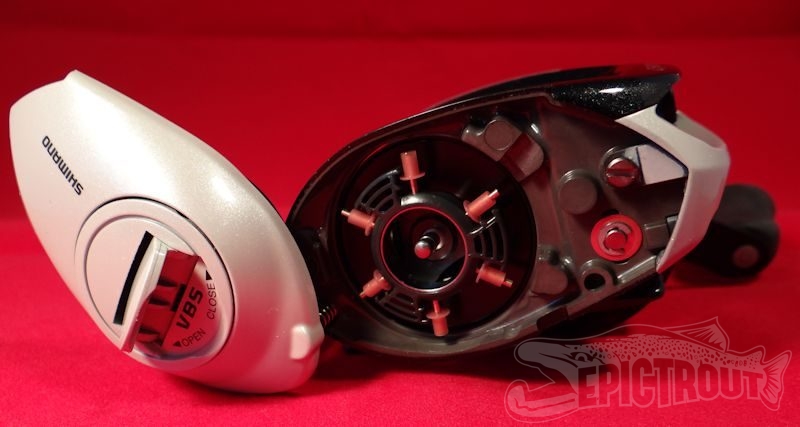Reel maintenance and service; the when, why, and what about…..
Reel maintenance, sometimes written about, often discussed, seldom followed through on. Certainly, some are better than others when it comes to this discipline, then there are the rest of us, and we are the ones that never loosen our drags, never wipe our reels down (even the magnesium ones), and never check or clean the line guides. We merely take them out, use them, and if they’re lucky, we put them back in a rod locker. Ah, then something happens, and we wonder how, or scramble to ask anyone who will listen why it did? Hmmmm, sound familiar? I admit I’ve been convicted of this far too many times. My excuse? Well, I’m always too busy performing service on everyone else’s reels. Thus mine suffer! …Anyone buying this? Didn’t think so. Oh well, at least let me try and answer the when, why, and what about questions then.

First, let me begin by clarifying that “maintenance” does not necessarily mean tear apart and put back together, it means just that, “to maintain”, and it is by far the easiest work you can perform on a reel, yet it is one of the most critical, and overlooked aspects of reel maintenance. Wiping a reel down with a towel moistened with a little rubbing alcohol, or a simple green type product is a simple yet critical method of keeping those things that have a way of getting into our reels out of them. You keep the outside of your reel free of angel hair type grasses, dead tule, or even plain dirt build up, and the inside of your reel will stay much cleaner as a result. I have seen it time and again, where something that has gotten into a reel I am working on, has started it’s way in by being allowed to cling to the outside first. The top two offenders? Saltwater, weeds, and or grasses. Saltwater is an obvious culprit, but do not overlook grasses or weeds. They can cause serious damage to a level wind, or idle gear if allowed to tangle, and build up in or around a line guide.

Now, that brings us to, when do I service my reel(s)? Well, the answer to this question is based on the same principals we use on our tow vehicles, and or outboard. The more we use them, the more frequent our reels should be serviced. A fishermen who uses his equipment every week, or weekend, generally needs his reels serviced once a year. This is especially true if you fish tournaments, toss one of the new big baits on a regular basis, or practice punching. On the other hand someone who fishes once a month or so, you can generally get by with every other year depending on climate, and or exposure to the elements. No different than a vehicle. The more you use them, the more often they need service.

Next we have, why do I need to have service done if they are working ok? Well, as previously stated, it’s no different than with our vehicles. You want them to last and perform properly? Then have service performed regularly on them. The result will almost always be increased longevity, and reliability. We are after all protecting an investment when we have service performed on our vehicle, outboard, batteries, trolling motor, and most certainly the most used tool in our boats, our reels. Whether you do it yourself or have it done for you, regular maintenance will help prevent catastrophic failure before it has a chance to occur, and one would be amazed at the things we find when we open some of these units up. So do not let the lack of maintenance on any of the above cost you a fish of a lifetime, that enjoyable day on the water, or heaven forbid, tournament winnings of any amount.
Finally we come to the, what about? I receive these calls almost daily. For instance,
what about installing an aftermarket drag washer? How about this aftermarket lube, or can I use this cleaner? Now these are all valid questions, and none that we mind answering or advising on, so please feel free to ask away. My typical answer, and personal opinion, K.I.S.S. Keep it simple, and ask yourself this question. Will it help me catch more fish? After all, isn’t that what we’re all trying to do? Catch more fish? Sometimes this isn’t always a popular position to take. However, I base this opinion on both my personal, and professional experience. Having seen far too many aftermarket items such as lube “Y”, or drag washer “Z”, cause far more problems that they ever solved, or alleviated.

In the case of lubricants, we are often asked, what do I use to lube my reel? My opinion, and answer, use the lube manufactured by the maker of your particular reel. Simple, Daiwa owners, use Daiwa lubes. Quantum, and Abu users, use Quantum and Abu lubes. Shimano owners, use Shimano lubes. These manufactures invest heavily in the development of the lubes they feel work best in their particular units, and in most cases, are spot on. Shimano for instance spends thousands of hours in research and development of their lubes, and greases. Utilizing some of the most expensive, and advanced machinery in the industry to test both their gearing, and lubricants simultaneously.
Now in the case of drag washers, bearings, handles, etc, etc. Upgrades can always be performed. However, the key is to make the right one(s), with the right parts the first time, without causing damage or problems from doing so. Believe me, it happens all of the time, far more often than some would admit. So take the time to talk to a tech that specializes in your particular manufacture, get some guidance or advice before proceeding in performing any upgrade, and you can save yourself a ton of grief, and a lot of money by doing so.
In conclusion, as previously stated, reel maintenance or service without a doubt is one of the most talked about, seldom followed through on disciplines in the sport, and like I said, I’m as guilty as the next guy when it comes to this, so I am preaching to myself as well with this article. In this day and age of big heavy baits, punching, braided Spectra lines, 30# fluorocarbon, 8/0 hooks, lead core lines, and deep trolling, what would one think has the most exposure to stress, and force in all of this? That is correct, everything starts, and stops at the reel each and every cast, and or drop down. The stresses we subject our reels to in this day and age are immense, especially the older models. So remember, the more we use them, the more we need to look after them. No different than a tow vehicle, or an outboard. Do so, and one can easily expect their properly maintained reel to last ten to fifteen years no problem.
That, or we deal with the consequences when they come, and they will. Ultimately, it’s our choice, so please choose wisely, and have a great season!
.
![]()





